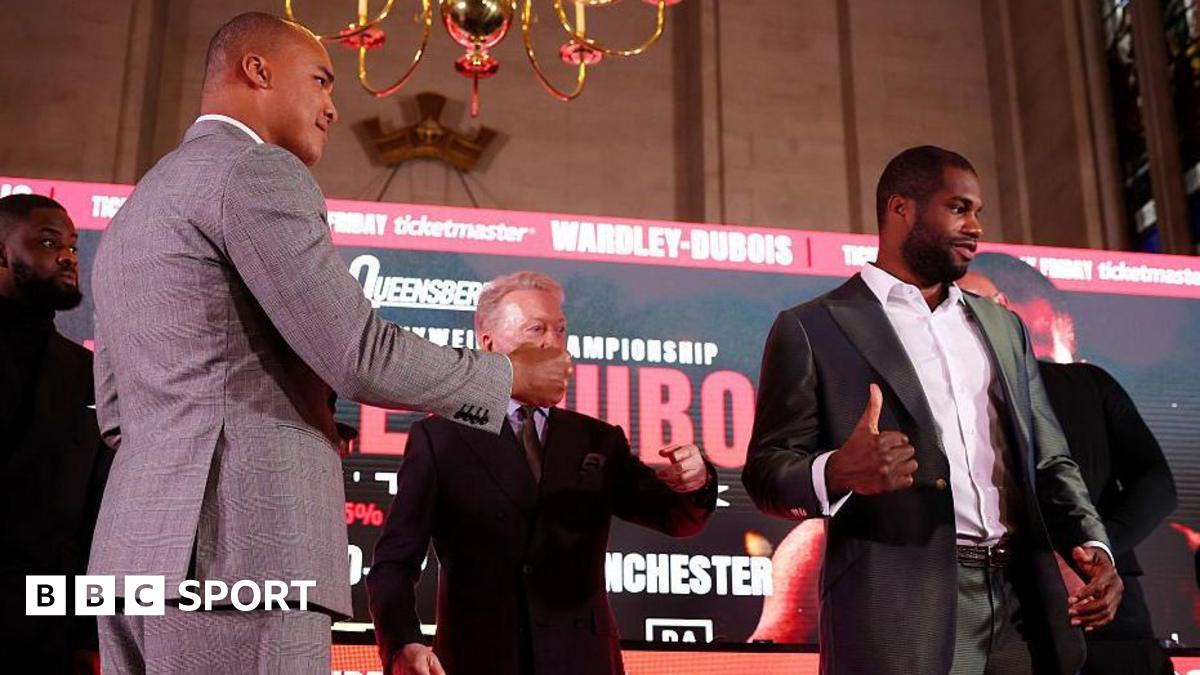Wardley vs Dubois: Daniel Dubois refuses fist bump from world champion Fabio Wardley after face-off
Daniel Dubois refused a fist bump from world champion Fabio Wardley as the pair came face-to-face at a lively news conference in London.
The world title fight between two of Britain’s biggest punchers takes place at Manchester’s Co-op Live Arena on 9 May.
After some long-winded bickering between the two camps, the fighters – relatively restrained until that point – finally sparked into life.
Wardley said he would “flatten” the challenger. “My power is proven. If there’s time left on the clock, I’m taking you out of the fight,” he added.
The 31-year-old – with 19 stoppages in 20 wins – will make the first defence of his WBO crown, having claimed the ‘interim’ title against Joseph Parker before being upgraded to full champion when Oleksandr Usyk vacated the belt.
Former IBF champion Dubois, 28, is coming off a devastating knockout loss to generational great Usyk last summer.
“If you look back, when it gets dicey, he’s not up for it,” Wardley said of Dubois, who has faced accusations of folding too easily in his three stoppage defeats.
Wednesday’s news conference took place at Dutch Hall, a converted 16th-century church tucked away in the heart of the city.
Dubois – never one for lengthy monologues – kept his answers short and matter of fact.
But the Londoner was clear in his intention. “Victory by knockout, by any means necessary,” he said.
When the fighters eventually stepped forward for the obligatory face-off, Dubois looked away first as Wardley smirked.
Moments later Wardley extended his fist in a gesture of respect, but Dubois shook his head and refused to engage.
